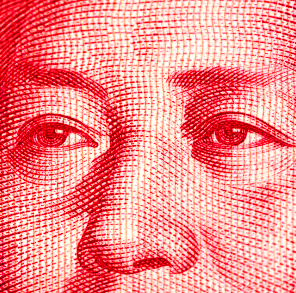China deal leak claimed
 A security pact between China and Solomon Islands has been described as “the worst Australian foreign policy blunder in the Pacific”, and new details suggest intervention could have come earlier.
A security pact between China and Solomon Islands has been described as “the worst Australian foreign policy blunder in the Pacific”, and new details suggest intervention could have come earlier.
The security deal reportedly includes provisions allowing Chinese security and naval deployments to the Solomon Islands - a nation of hundreds of islands located just over 1,000km off Australia’s borders.
According to a leaked draft of the agreement, armed Chinese police could be deployed at Solomon Islands’ request to maintain “social order”.
That leaked document has become the subject of many questions in recent days, with the Australian Government claiming it was blindsided by the secretive deal, while others claim Australia’s intelligence agencies played a role in orchestrating the leak.
Foreign Minister Marise Payne has told Sky News that the “bilateral security agreement only became known to us when it was published on social media at the end of March”.
Pacific Minister Zed Seselja said; “we found out about it when we saw that leaked draft”.
However, “multiple government and security sources… [have] confirmed that the Australian government was aware of the proposed agreement weeks before it was mysteriously posted online”, according to Nine media reporters.
It is also alleged that Australian intelligence agencies may have leaked the document in an effort to put public pressure on the leaders of China and the Solomon Islands.
The leak occurred just two weeks before two of Australia’s top spies - ASIS head Paul Symon and Andrew Shearer, director-general of the Office of National Intelligence - travelled to the Solomons to meet with Prime Minister Manasseh Sogavare.
Around the time of the leak, government figures had told reporters that Australia knew of China’s broad intentions in the region, but did not know the specifics of the deal until it was posted on social media.
After the deal was formally announced, Australia and the US scrambled to have it shut down, but failed.
Labor leader Anthony Albanese said “it was beyond comprehension” that Foreign Minister Marise Payne did not visit the Solomon Islands after the draft was leaked in late March.
“The United States very much relies upon Australia and sees Australia as playing that key role of partners in the Indo-Pacific,” he said.
“Australia and Scott Morrison have just gone missing.”
Australian Strategic Policy Institute executive director Peter Jennings says Chinese ships and aircraft could arrive in the Solomons within weeks.
“We can expect China to seek to consolidate this development very quickly by actually moving assets there, so we should expect cargo planes to arrive and ships to arrive and they’ll be unloading all manner of stuff,” he told reporters.
“Their model is what they’ve done in the South China Sea, which is to move quickly and decisively before people are able to gather their thoughts and resist.
“So I would imagine we would see something happen before we get to our election.
“Could we have done more after the leak of the document? Yes, absolutely, we should have engaged… [in a] more sustained senior diplomatic effort… to approach the Solomons government and Sogovare in particular.”
Experts say that it may not have mattered which politician was sent to try to interrupt the deal, and are now encouraging a stronger engagement with the Pacific that is driven less by fear over Australian security and more by foreign aid and mutual understanding.
It has also been noted that Australia’s decision to cut foreign aid in recent years may have left the nation looking elsewhere for new funds.







 Print
Print